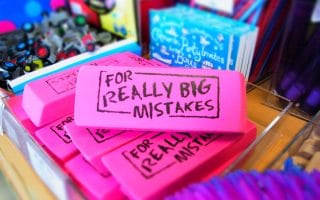
Certainly it’s convenient, but keeping all of your money at one institution carries many risks. If a single things goes wrong with that one bank or one account, you could face financial hardships while everything is straightened out. Here are some of the advantages you gain when you spread your assets around.
Easier To Recover From Theft
If you have all of your money in one account at one bank, a hacker can wipe you out. While the money will probably be replaced, it takes time. While you’re waiting you won’t be able to pay bills or buy anything unless you use a credit card, and anything you have set up to auto-pay will bounce. You might be able to get the fees reimbursed, but that’s even more hassle. If you have money in a couple of places, you’ll have access to cash while the other problem is straightened out.
You Have More Freedom
If your main bank suddenly raises fees, drops interest rates, or changes its policies, it’s nice to be able to quickly move your business elsewhere. If you already have an account somewhere else, it’s a simple matter to transfer your funds. If you don’t have somewhere else to go, you need to do your research and go through the process of opening and setting up an account. That can mean you’re at the mercy of bad policies or rates for a longer time. Using multiple banks means that one bank cannot hold your money hostage.
Institutional Strengths
You can take advantage of each institutions’ strengths. As with any consumer product, some banks are better at some things than others. Some banks are just not good at handling investments. They don’t have a variety of funds to choose from or experienced advisors to help you. If you have a lot of investments, you may be better off dealing with a dedicated brokerage firm than with your local main street bank. Similarly, some investment firms do not make good checking account or credit card providers. Figure out your needs and then find the institutions that are the best match for those needs. It’s likely that you won’t be able to find a single institution that can meet every need that you have.
FDIC Protection
FDIC protection only covers the first $250,000 per depositor, per institution. (FDIC protection does not extend to investment accounts, only cash deposit accounts like savings or checking.) If you have more than that, you need to open another account at another bank to ensure that your money is protected if the bank goes under.
Protection From Overspending
Some people have difficulty not spending money if it’s in their main account. They think that if it’s there it’s fair game, forgetting (or choosing to ignore) things like emergency funds, retirement, and bills to be paid. If you keep the money you need to save in another account at a less convenient or online-only bank, you may find that you can better resist the urge to spend because the money is harder to access.
To Preserve Credit Union Access
When I first started out, my parents got me into the credit union that they used. Even though I no longer have any affiliation with the group that runs the credit union, I’m grandfathered in. I no longer use the credit union as my primary bank, but I do keep some money in there so that I retain my membership. If I completely closed the account, I would not be able to get back in and they are very useful for certain financial products such as loans and mortgages, if the need arises. If you have access to a credit union but want to switch banks, it may be wise to at least keep your accounts open there so that if you need the credit union in the future, you’re already in.
It Can Make Budgeting Easier
If you have your daily spending money in one account, the money you need for utilities and rent/mortgage in another, and your savings in yet another account, it can make it easier for you to budget. Instead of trying to figure out how much money you need to mentally set aside for each goal or payment, it’s all already separated for you. Some people find this complex, but others find it helpful to keep everything physically separate.
Protection Against Bank Failures
While it’s unlikely your bank will fail, the mess of 2008 taught us that nothing should be taken for granted. Even if the bank shuts down only temporarily, it can leave you stranded if you don’t have another source of cash.
Protection Against Screw-Ups & Accidents
Sometimes things go horribly wrong with banking. Someone enters the wrong account number and your account is erroneously charged. The ATM machine eats your card on Friday night, meaning you can’t get money for the rest of the weekend. If you have another source of cash, you’re not totally adrift while the bank sorts out the mess. If this is your only bank and only account, you’re out of luck until they fix it.
It Can Make Travel Easier
If you travel frequently but you only have your money in a local bank or credit union, you may have trouble getting cash on the road, or you may have to pay a lot of fees to do so. In this case it may make sense to keep at least some of your money with a nationwide/worldwide institution so that you can get money when and where you need it.
One thing to note: If you’re going to open accounts at multiple institutions, make certain that you are not drowning in fees. Search for free checking accounts or use online accounts. Make certain that you can deposit enough with each institution to cover minimum deposit requirements. If splitting up your assets means that you will be paying too much in commissions and fees, it might be better to consolidate with one or two banks. While there are advantages to keeping things in multiple places, it doesn’t make sense to spread yourself so thin that you have to pay fees with every bank. Do the math and figure out what will work for you.
You don’t have to have ten or fifteen accounts, but it can make sense to have at least a checking account, a savings account, and a brokerage account at different institutions. That way, you can move some money in or out of one if it becomes necessary. Putting all of your eggs in the one proverbial basket can lead to problems.
(Photo courtesy of Chase Lindberg Photography)

Jennifer Derrick is a freelance writer, novelist and children’s book author. When she’s not writing Jennifer enjoys running marathons, playing tennis, boardgames and reading pretty much everything she can get her hands on. You can learn more about Jennifer at: https://jenniferderrick.com/.






Comments